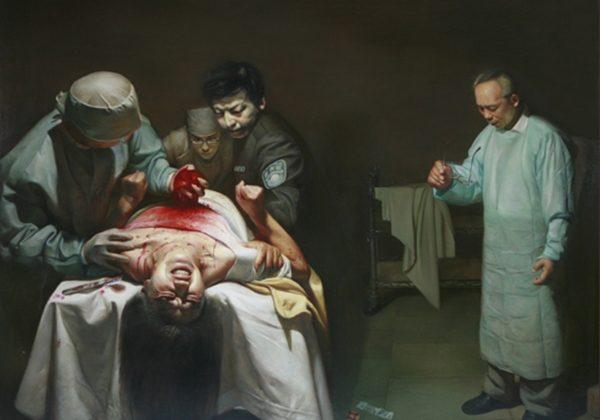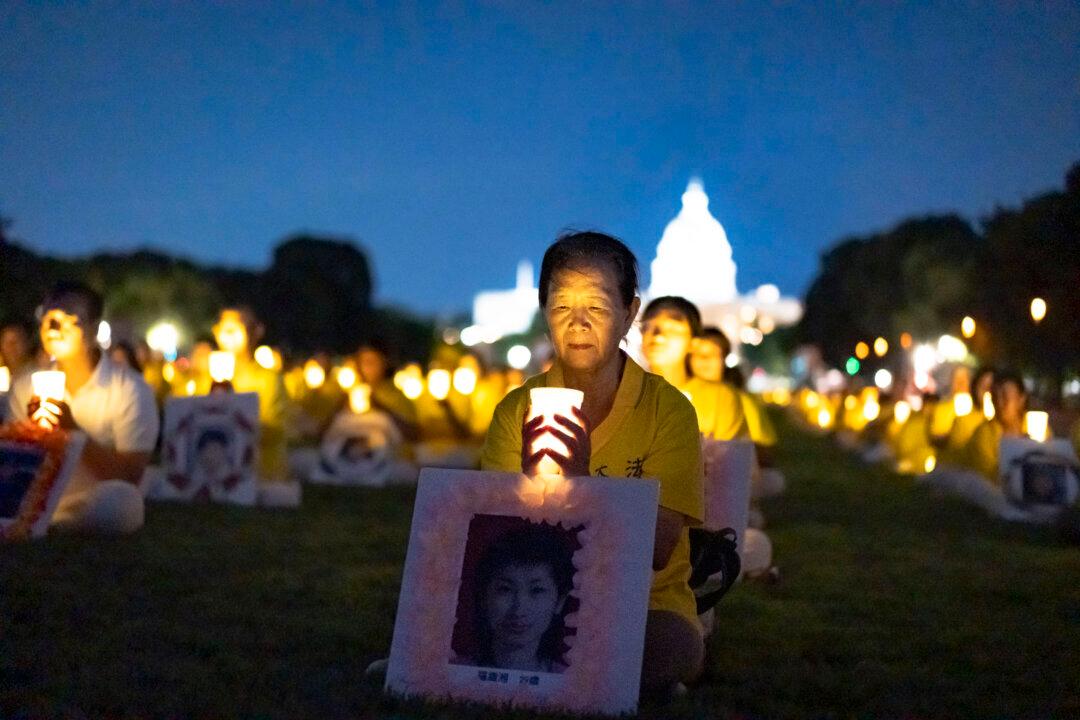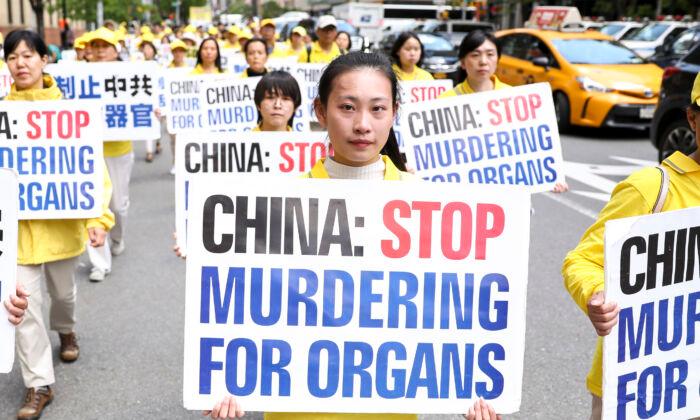As trade talks with China continue, some events have drawn attention to the longstanding ethical debate regarding free trade, human rights, and corporate responsibility.
There are numerous examples of Western corporations bowing to China’s censorship, placing profits above principles. China’s demand last October for the National Basketball Association to fire the Houston Rockets’ general manager stands as the highest-profile organization threatened by the authoritarian regime, in a challenge of one of the core values of free and democratic societies: the freedom of speech.
Meanwhile, a bipartisan congressional delegation led by Rep. Sean Patrick Maloney (D-N.Y.) was denied entry to China last year because of his delegation’s intention to visit Taiwan. It has become ever more clear that the core values of U.S. corporations and our democratic principles are on the line and need to be defended.
How can our trade talks be considered successful if our core principles must be sacrificed to facilitate talks and exchange?
Although we can’t change another country’s policies, we are free to decide to what extent we are willing to sacrifice our ethical values and principles. In this context, a subject that is gradually gaining the recognition it deserves might be worth considering while trade discussions are moving along. We’re talking about forced organ harvesting from prisoners of conscience in the People’s Republic of China.
In 2006, the international community first learned about the forced organ harvesting of Falun Gong practitioners and other prisoners of conscience. Since then, independent investigations have compiled volumes of credible evidence and reports, yet despite being one of the most heinous and well-researched crimes against humanity in the 21st century, the international reaction has been surprisingly muted.
Transplants in China Are Unethically Sourced
China’s transplant system has relied on these unethically sourced organs since its inception. In 2005, China admitted the use of organs from executed prisoners, yet as of today, has never admitted using organs from prisoners of conscience, such as detained practitioners of Falun Gong, Uyghurs, Christians, and Tibetans.Although Chinese medical authorities declared that as of January 2015, China would no longer use organs from executed prisoners and would base its organ transplantation solely on voluntary donors, an analysis of official Chinese deceased organ donation data, published in 2019 in the BMC Medical Ethics journal, casts serious doubts on the credibility of China’s organ transplant reform. The data points to systematic falsification and manipulation of official organ transplant datasets and the misclassification of executed prisoners as voluntary donors.
In June 2019, an independent People’s Tribunal on China’s forced organ harvesting practices published its judgment affirming these concerns. The tribunal, chaired by Sir Geoffrey Nice QC, former prosecutor at the U.N.’s International Criminal Tribunal for the former Yugoslavia, systematically reviewed available research findings and conducted more than 50 interviews with witnesses and experts.
The panel stated in its final judgment that “the Tribunal’s members are certain—unanimously, and sure beyond reasonable doubt—that in China forced organ harvesting from prisoners of conscience has been practiced for a substantial period of time involving a very substantial number of victims... and that Falun Gong practitioners have been one—and probably the main—source of organ supply.”
A South Korean TV documentary from November 2017 is just one of the many pieces of evidence reviewed by the tribunal. A hidden camera that was carried inside the Tianjin First Central Hospital in China recorded a nurse saying, “with US$10,000, you can get an organ as soon as in two days.”
It’s the medical community’s responsibility to recognize its moral duty to safeguard international standards of medical ethics. However, it is our entire society’s responsibility to speak out against human rights atrocities, especially those classified under international law as crimes against humanity.
We believe that trade negotiators and the business community should also put human rights on the table and avoid compromising our values and principles.
Nice concluded that “Forced organ harvesting is of unmatched wickedness, even compared ... with the killings by mass crimes committed in the last century,” underscoring a serious human rights abuse that should be considered in any principled interactions we have with China.





